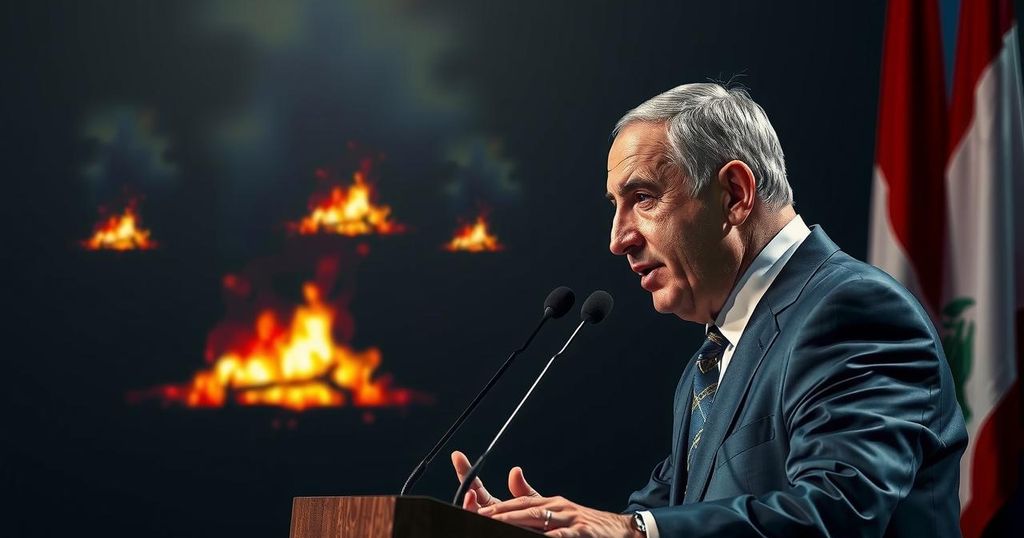Israeli Prime Minister Benjamin Netanyahu declared that the conflict with Hezbollah is ongoing despite a ceasefire, citing recent violations. The situation escalated with Israel conducting airstrikes in response to Hezbollah’s actions, leading to accusations from France of multiple Israeli ceasefire violations. There are warnings from Israeli officials about harsh consequences if Lebanon does not control Hezbollah, underscoring the fragile state of peace in the region.
On December 3, Israeli Prime Minister Benjamin Netanyahu announced that the conflict with Hezbollah is far from resolved, despite the existing ceasefire. During a cabinet meeting in Nahariya, he clarified, “We are currently in a ceasefire, I note, a ceasefire, not the end of the war,” emphasizing Israel’s intent to restore safety to its northern regions and to enforce the ceasefire stringently. Netanyahu accused Hezbollah of breaching the ceasefire, leading Israel to respond with airstrikes targeting over 20 locations in Lebanon.
The situation intensified as France accused Israel of violating the ceasefire agreement 52 times, including a recent attack that resulted in civilian casualties. Following these incidents, Israeli forces conducted their largest air assault since the ceasefire was initiated, resulting in the deaths of 10 individuals in southern Lebanon. In retaliation, Hezbollah responded by shelling Israeli positions, further escalating tensions.
Israeli Defense Minister Israel Katz echoed Netanyahu’s sentiments, insisting that the Lebanese military must act against Hezbollah to uphold the ceasefire, stating, “We will work with all our might to enforce all the understandings of the ceasefire agreement, and we show maximum response and zero tolerance.” He warned of severe consequences if Lebanon fails to control Hezbollah, indicating that Israel would respond forcefully in the event of renewed hostilities.
As the violence continues, both military and political leaders stress the fragile nature of the ceasefire and the potential for renewed conflict if violations persist. Despite ongoing diplomatic efforts, the regional tensions remain high, and the situation remains precarious for both Israel and Lebanon.
The article focuses on the recent escalation of tensions between Israel and Hezbollah, particularly following the establishment of a ceasefire. This context highlights the ongoing conflict that has persisted in the region, characterized by military exchanges and accusations of violations of agreements. The conflict has significant implications not only for the two parties involved but also for regional stability. Understanding the history of hostilities between Israel and Hezbollah is essential in grasping the delicate nature of the current ceasefire and its potential repercussions for Lebanon and the broader Middle East.
The announcement of a ceasefire between Israel and Hezbollah does not signify the conclusion of hostilities, as made clear by Prime Minister Netanyahu’s statements. With continued violations and military responses from both sides, the conflict remains deeply entrenched. Key leaders from Israel have expressed a determination to enforce their objectives rigorously, indicating that the current cessation of fighting could quickly dissolve into renewed violence if tensions are not managed effectively.
Original Source: thecradle.co






